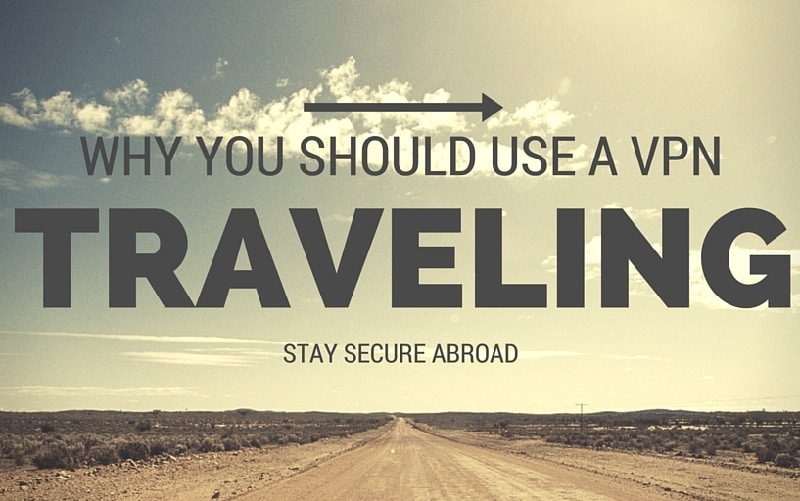We’re more global than ever before. We travel abroad, and need to be constantly connected. E-mail, Facebook, Twitter, Instagram and just local bus times and restaurant suggestions. Where before, we’d rely on travel guides or local knowledge or just what’s on the main streets, we now have enough information to live like a local in another town/another country. By taking our mobile phones and tablets abroad, we might have to fork out higher roaming charges, but deals can mitigate the problem.
Once the issues of cost have been resolved, mobile technology has been incredibly successful at getting us around, with far more apps and far more technology and enhanced web browsing, we’re able to do pretty much everything we can on a desktop on the devices in our pocket. The amount of data that we’re putting into these little devices really can be dangerous, especially given how expensive this information is.

Cybercrime may not be a new phenomenon, but it is a problem which is becoming more prevalent than ever before. Online transactions, and mobile transactions are now a daily occurrence and it is completely possible to shop, travel and eat without having to carry cash, thanks to contactless credit cards and mobile phone payments. As with anything that provides an easy opportunity, crime is catching up with modern technological developments and there are some sophisticated (and unsophisticated) ways of extracting money from your average unsuspecting tech user.
Cybercrime isn’t always personal, like burglary, where an individual may steal something for their own financial gain. Granted, there are cyber criminals whose sole aim is to steal as much money as possible, but there are also other reasons, e.g. the disgruntled employee who installs a virus on their server at work, or the criminal gang who skim data from large groups of people and sell it to the highest bidder. The rabbit hole often goes very deep and there are some pretty scary methods of extracting digital information that may not be apparent at first. You may not hold the value of your own digital information very highly, as can be seen by how much of it we willingly give to companies such as Facebook. This is far from the truth however. Our data is incredibly valuable and, gigantic lists of email addresses, phone numbers and, more dangerously, national insurance numbers, health records and banking information can be highly desirable to criminals and unethical organisations that know how to use them to their advantage.

The most common digital device that we use to complete transactions, input sensitive personal data and communicate information with others is our mobile phone. The phone itself is worth a lot to a mugger (a typical iPhone 7 model retails anywhere between £500 and £800) but that isn’t the only loss you could encounter if your phone is stolen. With Apple pay, unsecured banking or PayPal apps and saved webform passwords, it becomes very easy for criminals to drain any bank accounts linked to a phone within minutes. The same applies to your Android / Windows phone, tablet or laptop.
There are some easy steps to take to ensure this nightmare scenario doesn’t happen when an ‘unsophisticated’ cyber-criminal snatches your phone and runs off. Every single smart phone includes a screen lock, which should make your phone unusable unless it’s in your hands. Make sure your apps are password protected and untick the option for webforms to autofill your banking or online shopping passwords. Don’t flash your phone around when out in public and keep it in a zipped bag or tight pocket; phones are easy to steal from tables in pubs and restaurants when your attention may be on something else. This is particularly important when your guard may be down in a foreign bar, relaxing.
Even with these physical measures, your information may still be accessible to the ‘sophisticated’ criminal. Buying something online using an unsecured public Wi-Fi network is full of pitfalls. For those travellers who don’t want to be charged for roaming data, hotel WiFis can seem like a viable option, especially when so many places offer the service as a matter of course. Open Wi-Fi networks are easily accessible and hackable as the passwords and encryption types are available to anyone that connects to the network. False gateways and fake payment pages often catch people out and before you know it, your bank account has been emptied.

Using a VPN app on your phone ensures that any data you send is encrypted, even on a public network. Different VPNs do offer different benefits, and are also for different purposes. Naturally, security is the key factor here. The biggest providers are also covered quite well, with specific services for the Android network, and for Apple products. By encrypting the data from point to point, it makes it much harder to break into the message. Apple was involved in a very visible spat with intelligence agencies in the US by refusing to show sent messages.
There are also some excellent security apps out there, with Cerberus being a great example. This app allows users to track a stolen phone, set off an alarm that notifies others that the device is stolen and gives the option to wipe the phone so no personal data or photographs can be accessed. You can also record audio from the device’s microphone, which can be passed on to the authorities to be used as evidence. Most of the more prestigious antivirus firms also offer software for phones, and other devices.
Because our phones are often with us 24/7, complacency can creep in and it may seem that something on our person is safer than a computer or tablet that isn’t under constant supervision. This can be especially true where sitting in a hotel bar, being in tourist mode and dropping our guards can easily become a reality. While we shouldn’t be so frightened of crime that we never use the handy mobile tools at our disposal, we should remain wary.The reality is that we carry nearly our entire lives in our pockets and care must be taken that this doesn’t fall into the wrong hands.














